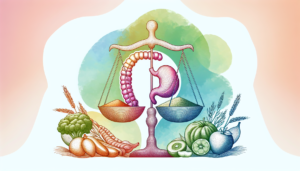Herbal Remedies for Immune Support
Herbal Remedies for Immune Support
Understanding Immune Health
The immune system serves as the body’s defense against pathogens, including viruses, bacteria, and other harmful organisms. An optimized immune system is crucial for maintaining overall health and well-being. While various factors contribute to immune health, including diet, lifestyle, and stress management, herbal remedies have gained attention for their potential support of immune functions. This article delves into several herbs renowned for their immune-boosting properties, anchored in scientific research and traditional use.
Key Herbal Players in Immune Support
1. Echinacea (Echinacea purpurea)
Echinacea has been used for centuries to combat infections, particularly respiratory ones. Numerous studies suggest that Echinacea may help reduce the duration and severity of colds. Its primary active compounds, echinacoside and polysaccharides, are believed to enhance the activity of immune cells, such as macrophages and natural killer cells.
Dosage and Use
Typically, Echinacea is taken in the form of tinctures, capsules, or teas. For optimal effects, it is recommended to initiate treatment at the onset of symptoms with doses ranging from 300 mg to 500 mg of standardized extract taken three times daily.
2. Elderberry (Sambucus nigra)
Elderberry is another powerhouse herb known for its antiviral properties. Rich in antioxidants, particularly anthocyanins, elderberry not only helps in fighting off viruses but can also reduce inflammation and boost overall immune response. Research indicates that elderberry can shorten the duration of influenza and alleviate cold symptoms.
Dosage and Use
Elderberry can be consumed as syrup, capsules, or gummies. Standard dosage is approximately 15 mL of elderberry syrup, taken four times a day at the onset of symptoms.
3. Astragalus (Astragalus membranaceus)
Astragalus, traditional in Chinese medicine, is widely recognized for its immune-supportive properties. It contains powerful antioxidants and has been shown to enhance both innate and acquired immune responses, making it an ideal herb for promoting longevity by strengthening the immune system.
Dosage and Use
Astragalus is typically consumed as a capsule or tea. A common dosage is 500 mg to 1,000 mg daily, often taken in divided doses or as a tea made from dried root.
4. Ginger (Zingiber officinale)
Ginger is not only a culinary favorite but also a well-respected herbal remedy known for its antimicrobial and anti-inflammatory effects. Ginger may help stimulate the immune system, improve circulation, and support digestion, all of which are linked to better immune health.
Dosage and Use
Fresh ginger can be infused in hot water to make tea, or it can be consumed in powdered form in capsule supplements, with a typical dosage of 1-3 grams per day.
5. Garlic (Allium sativum)
Garlic has long been heralded for its numerous health benefits, thanks to its active compound allicin. Studies show garlic can enhance immune function, reduce the severity of colds, and may even lower the risk of certain infections by stimulating the activity of T-cells.
Dosage and Use
To reap the benefits of garlic, one can consume 1-2 cloves of fresh garlic daily or take aged garlic extract as a supplement, typically 600-1,200 mg per day.
6. Turmeric (Curcuma longa)
Turmeric contains curcumin, which boasts potent anti-inflammatory, antioxidant, and immune-modulating properties. Research suggests that curcumin can enhance the effectiveness of immune cells and has a protective effect against autoimmune diseases.
Dosage and Use
Turmeric can be incorporated into meals or taken as supplements. The effective dosage of curcumin is about 500-2,000 mg daily, often paired with black pepper extract to improve bioavailability.
7. Oregano (Origanum vulgare)
Oregano is well-documented for its antifungal, antiviral, and antibacterial properties, primarily due to its high levels of carvacrol and rosmarinic acid. Oregano oil is particularly effective in combating respiratory infections and may enhance overall immunity.
Dosage and Use
Oregano can be used fresh, dried, or in oil form. A typical dose of oregano oil, highly concentrated, is 100-200 mg daily or 1-4 drops of essential oil in a carrier oil for topical use.
Additional Immune-Boosting Herbs
8. Ashwagandha (Withania somnifera)
As an adaptogen, ashwagandha helps the body manage stress, which is vital since chronic stress can negatively impact immune health. Its immune-enhancing properties may also support the body’s natural defense mechanisms.
Dosage and Use
Ashwagandha is available in powder, capsule, or tincture forms. Common doses range from 250 mg to 600 mg per day.
9. Cat’s Claw (Uncaria tomentosa)
Cat’s Claw is a rainforest vine known for its ability to stimulate the immune system and has been traditionally used to fight infections. Some studies suggest that it may help enhance immune response by increasing white blood cell activity.
Dosage and Use
Typically available as a tea, extract, or powder, doses of Cat’s Claw are around 20 mg to 350 mg daily, depending on the formulation.
10. Resveratrol
Though commonly associated with red wine, resveratrol is also present in several herbs like Japanese knotweed. This compound is praised for its antioxidant properties and capabilities to modulate immune function.
Dosage and Use
Standardized resveratrol supplements often consist of 100-500 mg taken daily, although it’s also available naturally through dietary sources.
Lifestyle Considerations for Maximum Impact
While herbs play a significant role in bolstering immune support, integrating them with a holistic lifestyle is crucial for maximizing benefits. Here are some lifestyle practices to consider:
1. Balanced Diet
A diet rich in fruits, vegetables, whole grains, nuts, and seeds provides essential nutrients that support immune function. Vitamins C, D, and minerals like zinc play pivotal roles in overall immune health.
2. Regular Exercise
Moderate, regular physical activity can help maintain a healthy immune system. Exercise supports circulation, reduces stress, and promotes overall well-being.
3. Adequate Sleep
Sleep is vital for immune health; studies show that insufficient sleep correlates with increased susceptibility to illness. Aim for 7-9 hours of quality sleep per night.
4. Stress Management
Chronic stress can impair immune function; employing techniques such as mindfulness, yoga, or deep-breathing exercises can aid in maintaining a balanced immune response.
Interactions and Precautions
While many herbal remedies can support immune health, they are not without risks. It’s essential to consult a healthcare provider before starting any new supplement, especially if you are pregnant, nursing, or taking medications. Some herbs may interact with pharmaceuticals, adversely affecting efficacy or increasing side effects. Always consider professional advice based on personal health history and dietary needs.
Choosing Quality Herbal Products
When sourcing herbal remedies, quality matters immensely. Look for products that are:
- Standardized: Ensure that active compounds are concentrated for effectiveness.
- Third-party tested: Reliability in product quality and contamination checks is essential.
- Reputable brands: Opt for brands with transparent sourcing, production practices, and positive reviews.
Final Thoughts
Embracing herbal remedies for immune support can potentially enhance your body’s ability to fend off illness. However, these remedies should complement a comprehensive approach to health that includes diet, exercise, rest, and stress management. With the proper knowledge and precautions, herbal allies can play a vital role in maintaining a robust immune system.








